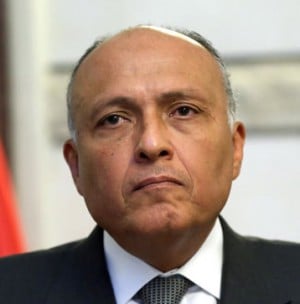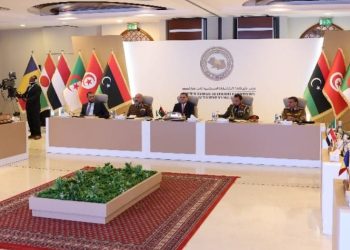By Libya Herald Reporters.

Tunis, 10 February 2016:
Egypt has warned that attacks on IS in Libya should be spearheaded by Libyans and . . .[restrict]that the international community should not intervene militarily before a unified and stable government has been formed.
Egyptian foreign minister Sameh Shoukry told Reuters today that precipitate international action against IS could end up replicating the NATO intervention against Qaddafi that produced Libya’s present troubles.
Shoukry said that, on past experience, Libyans would be a little bit concerned at a further foreign military involvement. He echoed the stance of UNSML chief Martin Kobler that Libya should have a unity government that was operating from Tripoli as soon as possible.
Kobler had been endorsing the view of House of Representative president Ageela Saleh, who earlier this week was in Cairo where he met Egyptian president Abdel Fattah Al-Sisi. Sisi has reportedly also maintained close touch with Government of National Accord prime minister-designated Faiez Serraj, whom he met for the first time last December.
Egypt has long called for the lifting of the UN arms embargo to allow the Libyan army led by Khalifa Hafter to re-equip to take on terrorist who continue to hold out in Benghazi. Hafter has repeatedly announced the imminent conquest of the western parts of the city and the port area where IS, Ansar Al-Sharia and the Benghazi Revolutionaries Shoura Council continue to hold out.
The international community is still sending mixed messages about any military intervention. Though the official line remains that no action will take place until formally requested by the new Libyan government, there is growing frustration at the delays in the selection of GNA ministers, which cabinet will then have to be approved by the HoR. Some politicians, including Italian defence minister Roberta Pinotti have suggested that military intervention might be necessary in an emergency, even without a request for counter-terrorist support from the new government.
Meanwhile, though the British defence minister Philip Hammond has denied reports that the UK is prepared to commit a thousand combat troops, a foreign office minister, Tobias Ellwood this week told a British parliamentary committee that the Royal Air Force had been flying surveillance missions in Libya airspace. [/restrict]












